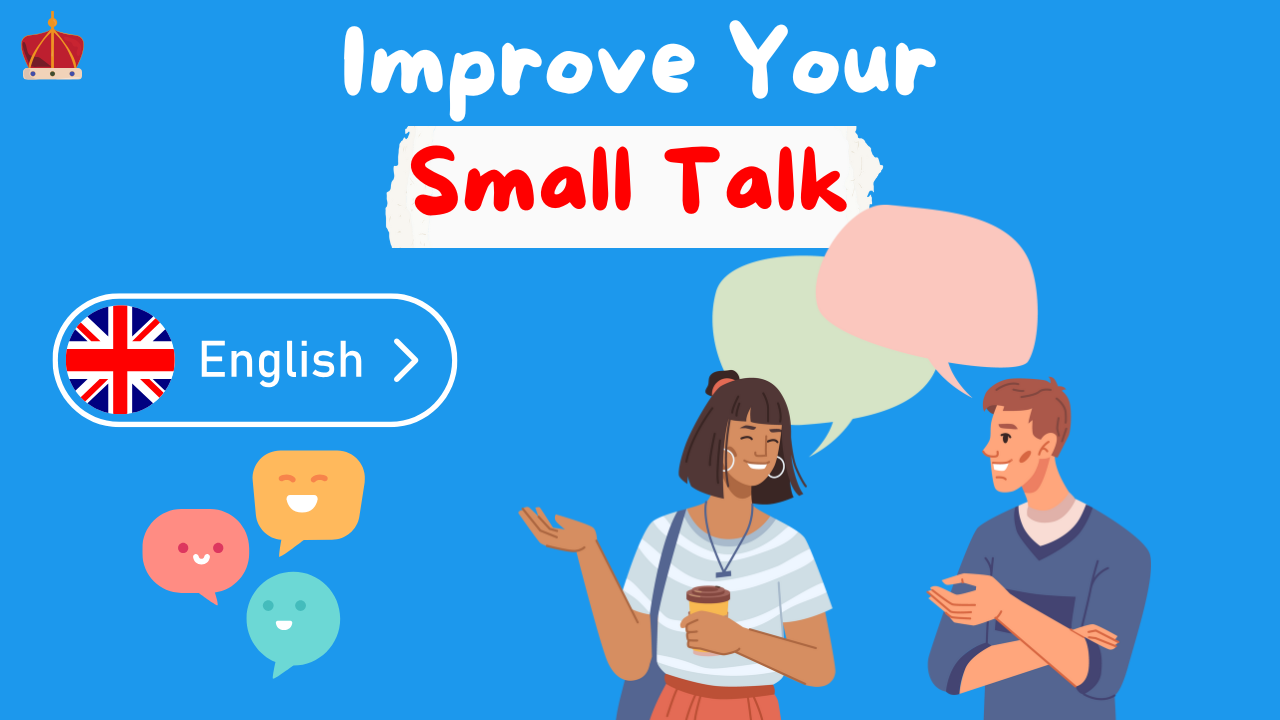
Mastering Small Talk in English: A Guide for Language Learners
Small talk is an essential skill for English learners, especially if you want to sound natural and confident in conversations. Whether you’re traveling, working in an English-speaking environment, or just socializing, mastering small talk can help you build connections and feel more comfortable in various situations. In this guide, we’ll break down everything you need to know about small talk, including why it’s important, common topics, and how to sound more natural.
Why Is Small Talk Important?
Small talk is more than just meaningless conversation—it plays a crucial role in social and professional interactions. In English-speaking countries like the UK and the US, small talk is a way to break the ice, fill awkward silences, and create a sense of friendliness. Whether you’re chatting with a barista while ordering coffee, talking to a colleague in the elevator, or mingling at a party, small talk helps to establish connections and make social situations more comfortable.
Even native speakers can find small talk awkward at times, but learning how to navigate these casual conversations can significantly improve your confidence in English.
Best Small Talk Topics
Not all topics work well for small talk. Some are easier and more natural than others. Here are a few safe and effective topics to use:
1. The Weather
Yes, it may sound cliché, but talking about the weather is one of the easiest and most common ways to start a conversation in English. In the UK, especially, people love discussing the weather. Try simple phrases like:
- “It’s been so rainy this week!”
- “Wow, it’s finally starting to warm up. I can’t wait for spring!”
Making an observation about the weather and expressing an emotion around it can easily spark a response from the other person.
2. Your Surroundings
Observing what’s happening around you is another great way to initiate a conversation. For example:
- If you’re at an event: “This place is really nice! Have you been here before?”
- If you’re at work after a meeting: “That meeting was quite long, wasn’t it?”
- If you’re waiting for public transport: “This bus is taking forever! I wonder if it will ever arrive.”
By simply commenting on something that is happening, you can naturally invite conversation.
3. Current Events
Talking about light news topics, sports, or entertainment can be a great way to engage in small talk. However, avoid politics and controversial topics since you don’t know the opinions of the person you’re speaking with.
4. Asking About the Other Person
People love talking about themselves, so asking simple questions can be a great conversation starter:
- “How’s your day going?”
- “What do you do for work?”
These open-ended questions allow the conversation to continue naturally and even transition from small talk into a deeper discussion.
How to Sound More Natural in Small Talk
Now that you know what to talk about, let’s look at some strategies to make your small talk sound natural.
1. Use Casual Phrases Instead of Short Answers
Instead of answering with just one word, try adding a little extra information. For example:
- Instead of “Good,” say: “Not too bad, I’m just on my way to work. Thanks! How about you?”
Adding details gives the other person a chance to continue the conversation.
2. React Naturally
Show that you’re engaged in the conversation by using expressions like:
- “Oh really?”
- “That’s interesting!”
- “Wow, I didn’t know that!”
These simple reactions make the conversation feel more alive and engaging.
3. Don’t Fear Pauses
Many English learners feel pressured to fill every silence by speaking quickly. However, natural conversations include pauses. Instead of stressing over filling every gap, relax, smile, and let the conversation flow naturally.
What If Small Talk Fails?
Sometimes, conversations die out, and that’s completely normal. If you feel stuck, try changing the topic with phrases like:
- “By the way, I heard you just got back from vacation. How was it?”
- “Oh, that reminds me—do you watch football?”
If you need to end the conversation, do it politely:
- “Well, it’s been great chatting with you! I’d better get going, but have a great day.”
This keeps the interaction positive and natural.
Final Thoughts
Small talk may seem challenging at first, but with practice, it becomes easier. The key is to keep it simple, friendly, and relaxed. Focus on easy topics, respond naturally, and don’t stress about pauses. The more you practice, the more confident and natural you’ll sound.
For more English learning tips, be sure to check out our Easy English Podcast. You can also explore bonus content on Patreon, including our series on News in Easy English, where we break down real news articles to help you learn new vocabulary.
Don’t forget to visit easyenglishpodcast.com to sign up for our free newsletter and access blog posts that help reinforce what you’ve learned.
Happy learning, and happy small talking!

